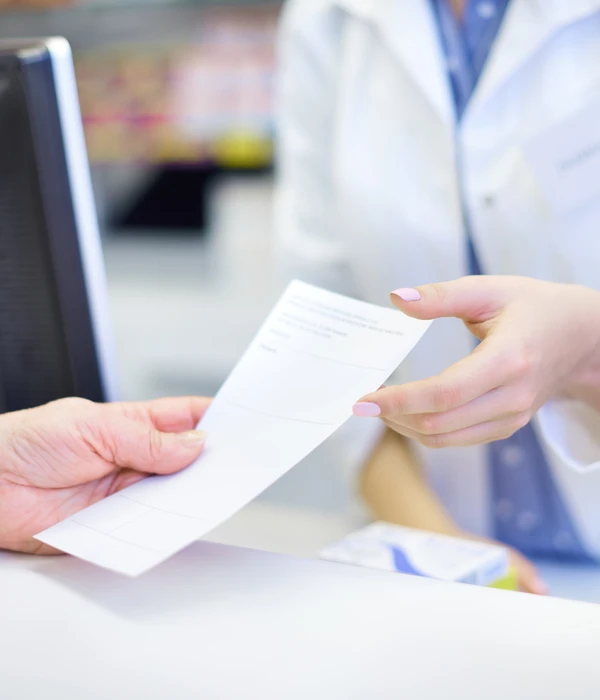Hallucinogen Addiction Treatment
The use of hallucinogenic drugs by young adults has almost quadrupled in the last ten years. 8% of young individuals between the ages of 19 and 30 reported using hallucinogens such as MDMA, mescaline, peyote, psilocybin, LSD, or PCP in the previous year, according to the National Institute on Drug Abuse.
Just 3% of people in this age range took hallucinogens in 2011. 11% of college students take hallucinogens, according to another survey. The majority of young people who take hallucinogens are male, Caucasian, and come from wealthy backgrounds.

In recent years, the percentage of young individuals who have used LSD has remained pretty constant at around 4 per cent. However, from 2018 to 2021, the percentage of young people taking non-LSD hallucinogens – like psilocybin and PCP – doubled (from 3.4 per cent to 6.6 per cent). MDMA, also referred to as Molly or ecstasy, is the only psychedelic whose usage has significantly decreased.
Why is the usage of hallucinogens by young adults increasing? Experts claim that because of media coverage of these medications’ possible therapeutic advantages, young people no longer see them as hazardous.
Furthermore, the legalization of marijuana has aided in the increasing acceptability of the usage of hallucinogens.

What are Hallucinogens?
Hallucinogens are a group of drugs that alter perception, thoughts, and feelings, leading to experiences quite unlike the ordinary. They can cause people to see, hear, or feel things that aren’t there. Hallucinogens include classic hallucinogens like LSD (lysergic acid diethylamide) and psilocybin (found in certain mushrooms), as well as dissociative drugs like ketamine, which can make users feel detached from reality.

Inpatient Care for Alcohol Addiction
Twilight Recovery specializes in inpatient care for alcohol addiction, providing a safe and medically supervised detoxification process followed by a personalized rehabilitation program.
Our treatment program provides medical intervention when necessary, coupled with therapy and support groups, to address both the physical and psychological aspects of alcohol dependency. Our goal for inpatient alcohol rehab is to ensure that individuals have the tools and resources they need for lasting recovery.

Inpatient Treatment for Substance Abuse
Our inpatient treatment for people struggling with a substance use disorder encompasses a range of therapies designed to heal the whole person.
Beyond detoxification from drugs, our program integrates CBT, holistic treatments, and life skills training to tackle the root causes of substance abuse. At Twilight Recovery, we create a nurturing environment that fosters growth, healing, and a sustainable path to sobriety.
Inpatient Rehab for Mental Health
Recognizing the intricate link between mental health and addiction, Twilight Recovery offers inpatient rehab that focuses on treating mental health disorders.
Our team of psychiatrists, psychologists, and therapists work collaboratively to provide comprehensive care that addresses specific mental health needs, utilizing a number of treatment modalities to promote overall well-being and recovery.
How Does Inpatient Drug and Alcohol Rehab Work?
Classic hallucinogens act on the brain’s neural circuits by influencing serotonin levels – a neurotransmitter tied to an array of bodily functions such as mood regulation, sensory perception, and appetite. These substances can dramatically alter one’s sensory experiences and emotional state.
LSD (D-lysergic acid diethylamide)
LSD, commonly referred to as acid, is renowned for its strength. Synthesized by Swiss chemist Albert Hoffman in 1938 from ergot, a fungus that grows on grains, LSD is a clear or white, odorless substance. Despite its Schedule I classification, indicating a high potential for abuse and no accepted medical use, LSD’s profound impact on consciousness continues to intrigue researchers and users alike.
Psilocybin
Psilocybin, the psychoactive compound found in certain mushrooms, delivers effects similar to those of LSD. These “magic mushrooms” or “shrooms” grow in various parts of the world, including South America, Mexico, and the United States. They can be consumed in multiple forms: fresh, dried, mixed with food, or brewed as tea.
251-NBOMe
Also known as N-Bomb, 251-NBOMe is a synthetic hallucinogen that shares structural similarities with LSD and MDMA but is far more potent. Originally developed for neuroscience research, it has since been distributed on the illegal market, where it’s often combined with other substances, making its use particularly risky.
Mescaline
Mescaline is derived from the peyote cactus. Users consume the cactus’s dried “buttons” by chewing them or brewing them into tea to experience its psychedelic effects. Both natural and synthetic forms of mescaline exist, each offering a unique set of hallucinatory experiences.
DMT (N-dimethyltryptamine)
Mescaline is derived from the peyote cactus. Users consume the cactus’s dried “buttons” by chewing them or brewing them into tea to experience its psychedelic effects. Both natural and synthetic forms of mescaline exist, each offering a unique set of hallucinatory experiences.
Marijuana
Marijuana, with its active ingredient THC (delta-09 tetrahydrocannabinol), is known to affect the brain in ways that can result in paranoia, anxiety, and hallucinations. Containing over 400 active substances, marijuana’s effects and its legal status are subjects of global debate and legislation.
Dissociative Drugs
Dissociative drugs are known for their ability to induce hallucinations by interacting with the brain’s NMDA receptors. This interaction disrupts the normal activity of glutamate, a neurotransmitter crucial for cognitive functions, emotions, and the perception of pain, leading to altered states of consciousness and dissociation from reality.

Dextromethorphan (DXM)
DXM is a common ingredient in over-the-counter cough suppressants that, at high doses, can cause hallucinations, delusions, and psychosis. Its accessibility makes it prone to misuse and addiction, underscoring the importance of awareness and control in its consumption.
Ketamine
Often referred to as Special K, ketamine started as a veterinary anesthetic but gained popularity for its euphoric and dissociative effects among recreational users. Despite its potential in mood disorder treatments, ketamine’s use is mired in controversy due to its potential for abuse and the profound dissociation it can cause.


Phencyclidine (PCP)
Originally developed as an anesthetic, PCP, or Angel Dust, fell out of medical use due to its severe side effects, including hallucinations and the risk of inducing violent behavior. Today, it’s recognized as a dangerous drug with a high potential for causing brain damage and fostering addiction.
At Twilight Recovery Center, we provide comprehensive care for those dealing with drug addiction to classic hallucinogens and dissociative drugs.
Signs and Symptoms of Hallucinogen Use Disorder
Recognizing hallucinogen use disorder is crucial for timely intervention and support. Below are signs and symptoms to be aware of:
Behavioral Signs
- Increased preoccupation with obtaining, using, and recovering from the effects of hallucinogens
- Engaging in risky behaviors while under the influence or to obtain the substance
- Continued use of hallucinogens despite facing negative consequences in personal, professional, or educational domains
- Withdrawing from social, recreational, or work activities in favor of hallucinogen use
- Failed attempts to cut down or control hallucinogen use
Physical Signs
- Dilated pupils, providing a clear indication of recent use
- Increased heart rate, which may be noticeable without any physical exertion
- Disorientation or confusion, often apparent in unfamiliar or challenging situations
- Uncoordinated movements, making simple tasks appear difficult
- Changes in appetite or sleep patterns often associated with the drug’s effects on the body
Psychological Signs
- Persistent hallucinations, seeing or hearing things that are not present
- Paranoia or increased suspiciousness, often leading to strained relationships
- Mood swings, ranging from euphoria to intense irritability or depression
- Anxiety or panic attacks, which may become more frequent or intense
- Altered sense of time, with time either slowing down or speeding up
- Difficulty concentrating or remembering, affecting day-to-day functioning

Short-Term Effects of Hallucinogen Abuse
The short-term effects of abusing hallucinogens can be unpredictable, ranging from euphoria and intensified sensory experiences to severe anxiety and panic attacks. The impact varies widely based on the type of hallucinogen, the dose, and the user’s personality and expectations.

Long-Term Effects of Hallucinogen Addiction
Prolonged use of hallucinogens can lead to hallucinogen-persisting perception Disorder (HPPD), where the user experiences flashbacks of their hallucinations, and potentially to substance use disorder, where the need to use hallucinogens becomes a central focus of one’s life, often at the expense of health and relationships.
Our Treatments for Hallucinogen Use Disorder
At Twilight Recovery, we understand the complex nature of hallucinogen use disorder and offer a range of personalized treatment options. Our approach integrates traditional and innovative therapies, ensuring each client’s journey toward recovery is supported and effective.
Individual Therapy
LSD, commonly referred to as acid, is renowned for its strength. Synthesized by Swiss chemist Albert Hoffman in 1938 from ergot, a fungus that grows on grains, LSD is a clear or white, odorless substance. Despite its Schedule I classification, indicating a high potential for abuse and no accepted medical use, LSD’s profound impact on consciousness continues to intrigue researchers and users alike.
Group Therapy
The power of shared experiences and collective healing forms the essence of our group therapy sessions. These sessions cultivate a sense of community and belonging by bringing together individuals navigating the recovery journey. You’ll engage in meaningful discussions, share your challenges and victories, and learn from the experiences of others.
This communal approach alleviates feelings of isolation and hones social skills and communication, which is vital for reintegrating into the wider world post-recovery.
Family Therapy
Understanding that addiction is not an isolated struggle, we extend our therapeutic reach to include the families of our clients. Family therapy sessions are designed to heal the wounds inflicted by addiction on loved ones, fostering an environment of mutual understanding, support, and growth.
By involving families, we aim to rebuild trust, enhance communication, and equip everyone with the tools necessary for a supportive home environment crucial for the individual’s recovery.
Types of Hallucinogen Addiction Treatment Modalities We Offer
We integrate a variety of treatment modalities to address the complex nature of hallucinogen addiction. We aim to facilitate healing on all mental, physical, and spiritual levels, tailoring our programs to meet your unique needs. Here’s an overview of the key addiction and mental health treatment modalities we offer:

Holistic Therapy
Holistic therapy is foundational to our treatment philosophy, emphasizing the interconnectedness of mind, body, and spirit. We strive to restore inner balance and harmony Through yoga, meditation, art therapy, and acupuncture.
This comprehensive approach not only aids in reducing the desire for hallucinogenic substances but also strengthens mental, physical, and emotional well-being.

Dialectical Behavior Therapy (DBT)
DBT is a powerful therapeutic tool in our arsenal, especially effective for those struggling with intense emotions and harmful behaviors.
By teaching skills in mindfulness, distress tolerance, emotional regulation, and interpersonal effectiveness, DBT helps you navigate the complexities of emotions without resorting to substance use.

Cognitive-Behavioral Therapy (CBT)
CBT forms a core part of our treatment strategy, addressing the thought patterns that underlie addictive behaviors.
By challenging and changing negative thought patterns and behaviors, CBT empowers you to cope with stressors and triggers in healthier ways, significantly reducing the likelihood of relapse.

Cognitive-Behavioral Therapy (CBT)
CBT forms a core part of our treatment strategy, addressing the thought patterns that underlie addictive behaviors.
By challenging and changing negative thought patterns and behaviors, CBT empowers you to cope with stressors and triggers in healthier ways, significantly reducing the likelihood of relapse.

Eye Movement Desensitization and Reprocessing (EMDR)
EMDR is particularly beneficial for individuals whose substance use is linked to trauma.
This therapy facilitates the processing of traumatic memories, reducing their emotional impact and helping you move forward in recovery with a sense of empowerment and resilience.

Motivational Interviewing (MI)
MI is a client-centered approach that enhances your motivation to change by resolving ambivalence. Through respectful and collaborative conversation, MI encourages your commitment to recovery and pursuing personal goals, making the journey towards sobriety a more personal and empowering experience.

12-Step Programs
Our adoption of 12-step programs provides a structured pathway to recovery, fostering a sense of community and shared experience. These programs emphasize spiritual principles and peer support, offering a blueprint for living that supports sobriety and personal growth.
By integrating these diverse therapeutic modalities, Twilight Recovery Center offers a personalized and effective pathway to recovery.
How We Treat Hallucinogen Addiction at Our Rehab Center
Understanding the complexity of addiction, we offer a spectrum of care levels, ensuring a seamless transition from one phase of recovery to the next. Here’s a closer look at how we structure our treatment programs:
Detoxification
The journey towards recovery often begins with detoxification, especially for individuals who have used multiple substances alongside hallucinogens.
Although hallucinogen users may not always require a medical detox, our initial over-the-phone screening and subsequent medical evaluation upon arrival help us determine the necessity of this step.
When medical detox is recommended, it’s conducted with the highest level of care and supervision to manage withdrawal symptoms effectively, providing a safe and comfortable foundation for the subsequent stages of treatment.
Inpatient Treatment
Following detox, many individuals transition to our inpatient treatment program, designed for those who require a structured and supportive environment to focus on recovery.
Inpatient care offers 24/7 support from our dedicated team of professionals, including therapists, medical staff, and addiction specialists.
This level of care allows for intensive therapy sessions, both individual and group, alongside other therapeutic activities tailored to address the roots of addiction and co-occurring mental health disorders.
Outpatient Treatment
As progress is made, transitioning to outpatient treatment provides a flexible yet supportive step from inpatient care. This phase allows individuals to continue their therapy and treatment programs while reintegrating into their daily lives, balancing recovery efforts and personal responsibilities.
Outpatient treatment reinforces the coping strategies and healthy habits developed during inpatient care, ensuring sustained support and guidance.
Sober Living/Aftercare
Recovery from hallucinogen addiction is an ongoing journey that extends beyond formal treatment.
Our sober living and aftercare programs are designed to support this critical phase, offering a safe and structured living environment that encourages independence while still providing access to recovery resources.
Residents can take advantage of continued therapy sessions, support group meetings, and life skills workshops, all aimed at preventing relapse and promoting a healthy, drug-free lifestyle.
From the initial detoxification to the nurturing environment of sober living, our comprehensive care model supports each individual through every step of their journey towards lasting sobriety.
Benefits of Getting Treatment for Hallucinogen Abuse
At Twilight Recovery Center, we understand the courage it takes to confront addiction, and we’re dedicated to supporting you through this transformative journey. The benefits of receiving treatment for hallucinogen abuse are profound and multifaceted, touching every aspect of your life and well-being.
Regained Control Over Life
Addiction can feel like a relentless cycle of dependence, where hallucinogens dictate your actions and thoughts. Treatment empowers you to break free from this cycle, regaining autonomy over your decisions and actions. With professional guidance, you’ll learn strategies to manage cravings and triggers, enabling you to take charge of your life once again.
Restored Relationships
Substance abuse often strains relationships with family, friends, and colleagues. One of the most rewarding outcomes of treatment is the opportunity to mend these bonds. Through therapy, including family counseling sessions, you and your loved ones can address the impact of addiction, rebuild trust, and strengthen your connections on a foundation of understanding and mutual respect.
Tools for Managing Cravings
Effective treatment provides you with a comprehensive toolkit for managing cravings and minimizing the risk of relapse. Techniques drawn from cognitive-behavioral therapy (CBT), dialectical behavior therapy (DBT), and mindfulness practices empower you to navigate challenging situations and emotions without resorting to substance use.
Maintenance of Long-term Sobriety
Achieving sobriety is a significant milestone, but maintaining it long-term is where the true challenge lies. Our treatment programs are designed not just to address the immediate issue of addiction but to lay the groundwork for sustained recovery. Through ongoing support, aftercare programs, and access to recovery communities, we help ensure that the changes you make during treatment are lasting.
Improved Mental and Physical Health
Hallucinogen abuse can take a toll on both your mental and physical health. Treatment addresses these health issues head-on, often resolving or mitigating symptoms of co-occurring mental health disorders such as depression, anxiety, or psychosis. Physical health improvements are also common as your body begins to recover from the effects of substance abuse.
Access to a Support Community
Entering treatment introduces you to a community of individuals who understand the challenges of addiction. This supportive network is invaluable for sharing experiences, offering encouragement, and fostering a sense of belonging. The relationships formed during treatment can become a source of strength and accountability, contributing to your recovery.

What is Hallucinogen Withdrawal?
Withdrawal Symptoms Upon Stopping Use of Hallucinogens
The symptoms can vary widely among individuals, reflecting these substances’ profound impact on the brain’s chemistry and perception processes.
- Anxiety
- Depression
- Cravings for hallucinogens
- Mood swings
- Irritability
- Fatigue
- Sleep disturbances (insomnia or excessive sleeping)
- Confusion or disorientation
- Memory issues
- Concentration difficulties
- Flashbacks to previous hallucinogen experiences
- Fear of losing one’s mind
- Paranoid thoughts
- Changes in perception (hallucinogen persisting perception disorder or HPPD)
- Social withdrawal
Seek Treatment for Hallucinogen Addiction at Twilight Recovery
If you’re navigating the challenges of hallucinogen diagnosis or treatment, our center combines expert care with a serene setting, ensuring a holistic treatment experience that addresses your physical and emotional healing.
With private accommodations, custom meal plans, and various activities from yoga to tennis, our facilities are designed to support your recovery journey comfortably. Our accredited team, including professionals in recovery themselves, provides empathetic and round-the-clock care.
Twilight Recovery accommodates clients in luxury and lockdown facilities, offers flexible pricing, and has a pet-friendly policy. Our approach is innovative and personalized, focusing on comprehensive care that covers substance abuse and mental health.
Choosing Twilight Recovery – where you’re treated and genuinely cared for every step of the way.
Contact us to get help with your addiction or mental health.
FAQs on Understanding and Treating Hallucinogen Use Disorder
What Are the Common Signs of Hallucinogen Abuse?
The symptoms of a hallucinogen addiction can vary but often include behavioral changes, such as an increased desire to take hallucinogens, neglect of responsibilities, and continued use despite negative consequences.
Physical and psychological signs may include dilated pupils, disorientation, hallucinations, and paranoia. Recognizing these signs is crucial for addressing addiction to hallucinogens effectively.
How Do Hallucinogens Affect Mental Health?
Hallucinogens can cause significant psychological effects, including altered states of perception, mood changes, and hallucinations. Long-term use is associated with hallucinogen-persisting perception disorder (HPPD), anxiety, depression, and other mental health disorders.
The impact on mental health underscores the importance of treating hallucinogen use with a comprehensive approach that addresses both addiction and co-occurring mental health issues.
Are There Any Specific Treatment Options for Someone Struggling with Hallucinogen Addiction?
Yes, specialized treatment programs exist for those struggling with hallucinogen abuse and addiction. These addiction treatment programs may offer a variety of therapies tailored to address the unique challenges associated with hallucinogen abuse, including managing cravings, reducing the use of hallucinogens, and addressing any co-occurring mental health conditions.
Holistic treatments and support for navigating the effects of hallucinogen use, such as HPPD, are also available.
Can Hallucinogen Rehab Centers Help with Reducing Hallucinogen Use?
Absolutely. Hallucinogen rehab centers like ours specialize in providing comprehensive care to help individuals reduce or cease the use of hallucinogens.
Through evidence-based therapies and support systems, these centers address the root causes of addiction, offer strategies for managing cravings, and provide a pathway to recovery that includes both physical and psychological healing.
What Are the Potential Side Effects of Hallucinogens?
The side effects of hallucinogens vary widely and may include sensory distortions, intense emotional experiences, altered perception of time and reality, nausea, increased heart rate, and paranoia. Some individuals may experience persistent side effects, such as hallucinogen persisting perception disorder (HPPD), which can continue long after the drug’s effects have worn off.